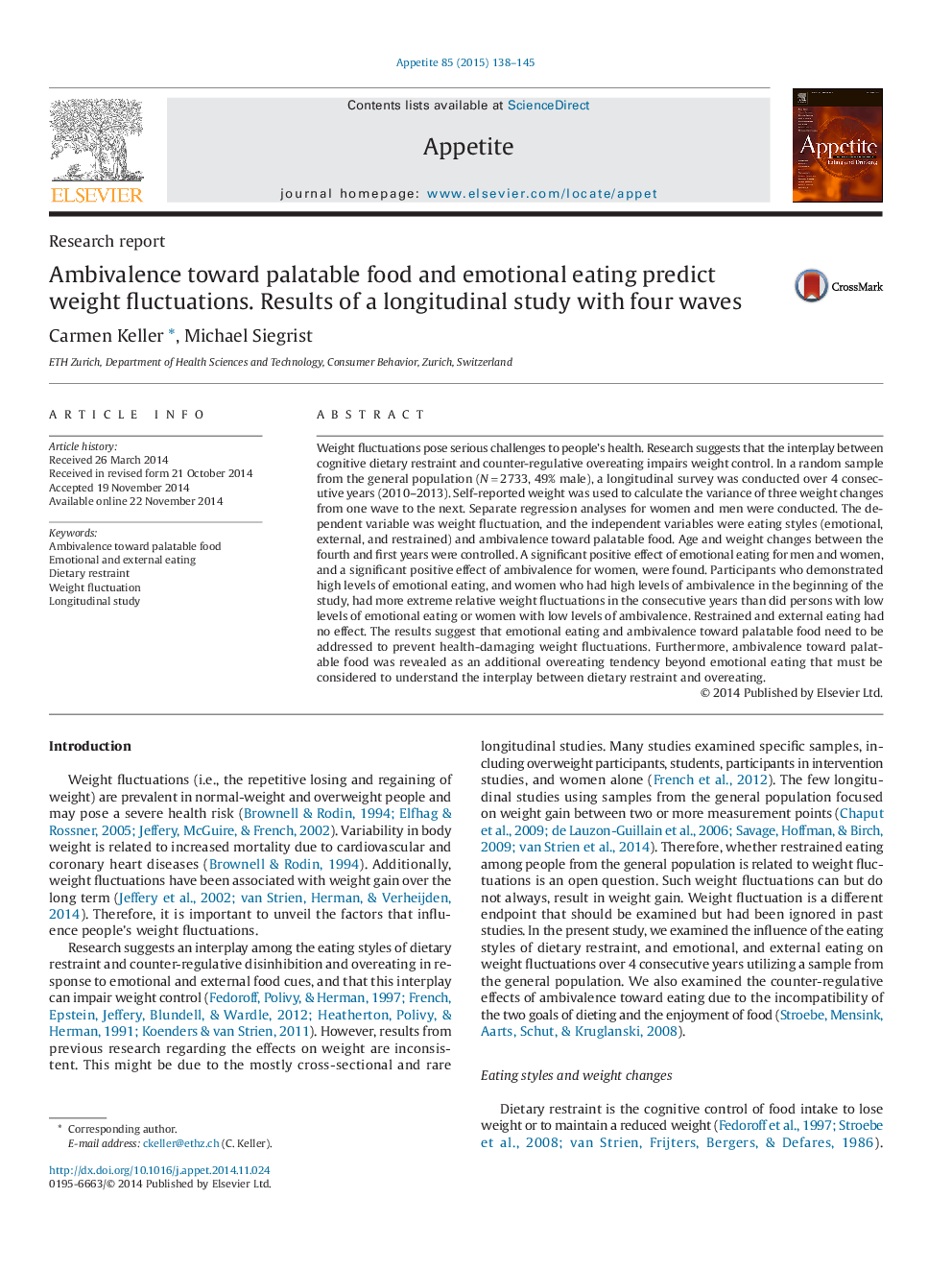| Article ID | Journal | Published Year | Pages | File Type |
|---|---|---|---|---|
| 7309467 | Appetite | 2015 | 8 Pages |
Abstract
Weight fluctuations pose serious challenges to people's health. Research suggests that the interplay between cognitive dietary restraint and counter-regulative overeating impairs weight control. In a random sample from the general population (Nâ=â2733, 49% male), a longitudinal survey was conducted over 4 consecutive years (2010-2013). Self-reported weight was used to calculate the variance of three weight changes from one wave to the next. Separate regression analyses for women and men were conducted. The dependent variable was weight fluctuation, and the independent variables were eating styles (emotional, external, and restrained) and ambivalence toward palatable food. Age and weight changes between the fourth and first years were controlled. A significant positive effect of emotional eating for men and women, and a significant positive effect of ambivalence for women, were found. Participants who demonstrated high levels of emotional eating, and women who had high levels of ambivalence in the beginning of the study, had more extreme relative weight fluctuations in the consecutive years than did persons with low levels of emotional eating or women with low levels of ambivalence. Restrained and external eating had no effect. The results suggest that emotional eating and ambivalence toward palatable food need to be addressed to prevent health-damaging weight fluctuations. Furthermore, ambivalence toward palatable food was revealed as an additional overeating tendency beyond emotional eating that must be considered to understand the interplay between dietary restraint and overeating.
Related Topics
Life Sciences
Agricultural and Biological Sciences
Food Science
Authors
Carmen Keller, Michael Siegrist,
